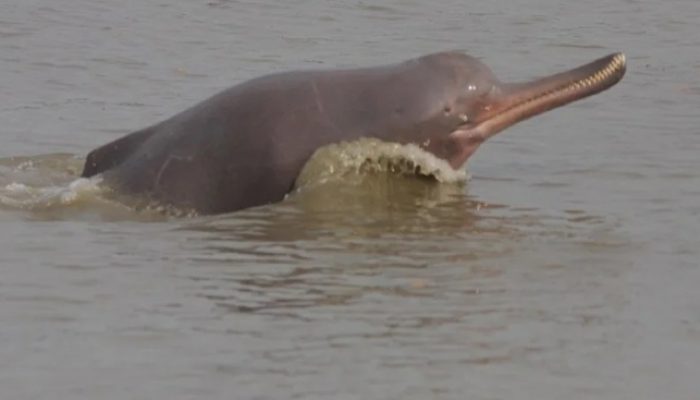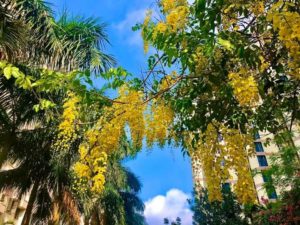It is after sunset, and I can hear sounds I haven’t heard in years: the chorus of chirping insects and screeching owls. Sunbirds flitter from corner to corner in the morning, the crow seems to have become bolder swooping closer to me when I venture out into the balcony. The world is certainly a quieter place in these days of the lock-down, with cars off the streets seismologists report that the ambient noise levels are so low they are now better able to detect even smaller seismic events. Naturalists stuck at home are reporting wildlife sightings in their backyards and the social media is overflowing with such news and pictures of wild animals walking down urban streets, newspapers report that the air has become so clean that snow-capped Himalayas can be seen from Jalandhar- hundreds of kilometres away.Delhi’s air quality this March was the best compared to the previous five years for that month.
So is the earth really healing? Are the animals “reclaiming” the planet, has nature “triumphed”? The answer is yes and no.
There has been some clear hoaxes. Scores of deer did not occupy a road in Ooty– those were actually a herd of sika deer in Japan’s Nara Park shot several years ago. The canals of Venice do not have dolphins even though the waters run clearer now, instead ducks, crabs and fish have reclaimed the canals. Venetians are thinking of possibly reducing motorised boat traffic so that some of this returning biodiversity can be preserved. In India a nilgai was spotted in Noida, a sambar in Chandigarh, peacocks in Coimbatore. Olive Ridley turtles are nesting undisturbed in large numbers on the beaches of Odisha…benefiting from the rare lack of human predators.
Taking advantage of this rare opportunity several science groups have begun to collect data, Bird Count India has launched a Lock-down Birding Challenge asking people to observe birds in their backyard for 15 minutes, twice a day, using eBird to upload the data. The objectives of these programs are three-fold. Firstly to gather data about the impact of lockdown and reduced human disturbance on bird, insect and animal activity. Secondly, to educate people about the importance of nature and thirdly to help reduce mental stress. In these stressful times watching and listening to nature can help and can make a lot of difference in the mindset to melt away stress. But there has been a downslide for wildlife too, conservationists and wildlife researchers worry that fear of wild creatures like bats can lead to people to eliminate them. Recently two trees in Mysore were felled because it had bat roosts, local people were afraid of picking up virus from them. But this will not keep people safe – it will only drive the bats to other habitats.
Any breather the world may be getting now is only temporary…a brief reprieve. The swift global spread of the virus from Wuhan to most distant corners of the world is due to our reckless tendency to over consume. The excessive volumes of carbon dioxide that we have pumped into the air for over decades will not disappear in a few days or weeks or even months of lock-down.
When the crisis is over and we return to the grind of urban living, will we remember the blue skies, the faraway mountains, breathe clean air and listen to the singing of birds? Probably not, as we will be busy with our computer screens with headphones plugged in!!!
We need to realise that life has to be slowed down and we need to spend more time with nature to return to a quieter and harmonious way of life. Otherwise tales of the world healing itself will remain a dream for us….forever.















Exellent post
Wakeup call has been given by nature, let’s see how long it lasts. Nicely written.